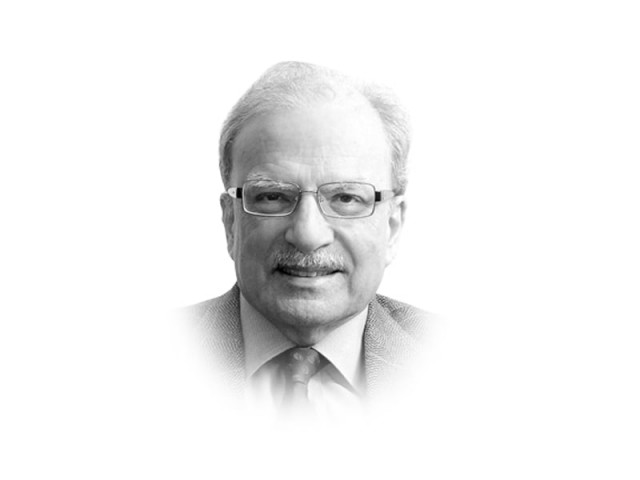The world after Brexit
Brexit has raised the spectre of what one American political scientist called the ‘clash of civilisations’

The writer is a former caretaker finance minister and served as vice-president at the World Bank
There was a virtual consensus among experts from the fields of economics and as well as political science about the main causes of Brexit, the move to take Britain out of the European Union. London was not an original member of the club -- it had joined in 1973. A segment of the British population voted against those who had governed their country. Most western nations were ruled by elite that had drawn political comfort and economic benefits from the process generally referred to as globalisation, leaving the masses behind. The masses were now reacting on both sides of the Atlantic.
Much of the support for the less-than-normal candidacy of Donald Trump in the United States was coming from the same socio-economic class that prevailed in the United Kingdom that voted in favour of Brexit. The British vote has led to two developments that will have enormous consequences for the British Isles, for London’s relations with other parts of the federation that make up the United Kingdom, for what kind of contacts Britain will have with the remaining members of the European Union, and how it would affect the special relationship London has enjoyed with Washington. Both, President Barack Obama and John Kerry, his secretary of state, have said that their country’s relations with the UK will not change materially. They have thus reversed the earlier position when they were threatening to focus more on Europe than on Britain.
The first development is the great upheaval in the structure of politics in the country. The Conservatives and Labour are in the process of choosing their new leaders. David Cameron, who will remain as a caretaker until October 1, will be replaced by a much more conservative politician while Jeremy Corbyn, the Labour Party leader, is being challenged by the backbenchers in his own party. A vast majority of the Labour members of parliament have voted against their leader but the leader is refusing to bow out. Economic and political crises don’t normally come together. Revolutions result when they do.
The second development is also troubling and unsettling. This relates to the relationship of the country’s citizens with millions of migrants. Britain’s large foreign community that makes up 10 per cent of its population is made up of three distinct communities: the people who began to arrive after London left its colonies in Asia and Africa, those from the relatively poorer countries in the eastern and southern parts of the European Union, and, more recently, tens of thousands of people who have come from war-torn countries in the Middle East and Afghanistan. There are significant numbers of people of the Muslim faith among the first and third groups.
As in America, Islamophobia is on the rise in Europe as well. In the West, there are popular movements directed at controlling the arrival of Muslims; Donald Trump gained a lot of popularity after announcing that he if were elected president, he would ban the entry of all Muslims into his country while undertaking serious surveillance of those who were already in.
Brexit, therefore, has raised the spectre of what one American political scientist called the “clash of civilisations.” Those who lead such extremist movements as the Islamic State in Iraq and Syria and al Qaeda in several Muslim parts of the world would benefit from the application of Islamophobia in the West and its application to the making of public policy. These developments would help in increasing the flow of new recruits to the IS and al Qaeda. As President Obama keeps pointing out, this kind of talk is relished by the extremists.
Those who led the Brexit campaign rushed into the territory they had not visualised. Theirs was a simple-minded campaign. There was a belief that leaving the EU would save London a great deal of money; the funds it contributes to the Union’s budget could be applied to improving social services at home. Also, by controlling its borders, London will admit a much smaller number of people bringing in the skills the economy needs. What they have unleashed are many forces that seem hard to control, which was why many in the country are now talking about another referendum. The play is still being written and the drama may not be performed to the script that was originally composed.
Published in The Express Tribune, July 4th, 2016.
Like Opinion & Editorial on Facebook, follow @ETOpEd on Twitter to receive all updates on all our daily pieces.
















COMMENTS
Comments are moderated and generally will be posted if they are on-topic and not abusive.
For more information, please see our Comments FAQ